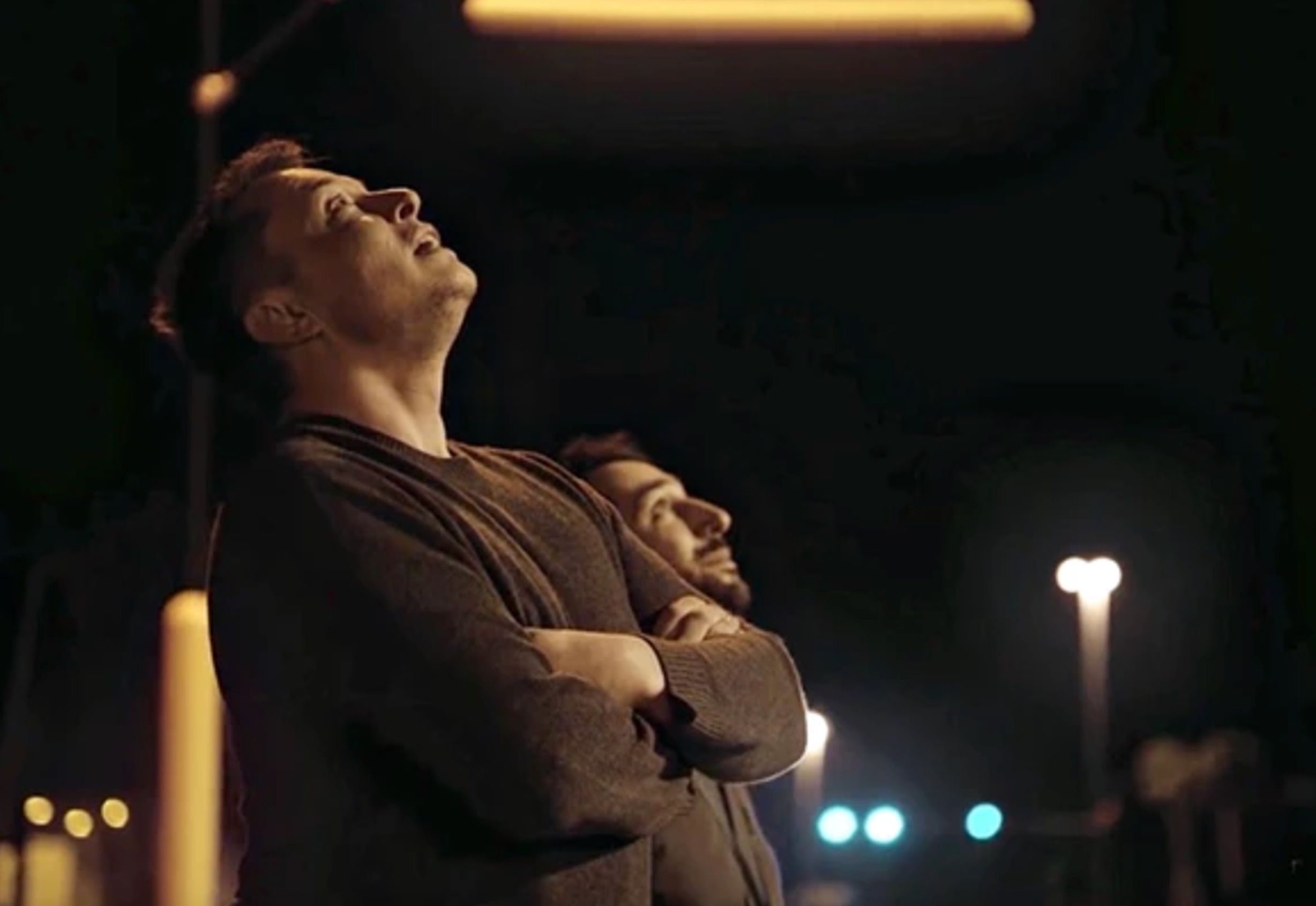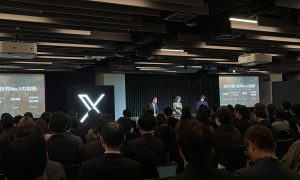

News
Elon Musk taunts Boeing on claim they’ll beat SpaceX to Mars
The space-race to Mars is heating up, as Boeing CEO Dennis Muilenburg seemingly calls out SpaceX CEO Elon Musk by saying his company will send the first human to the red planet.
Not one to back down from an opportunity to fire back with some sass, Musk invited the challenge, tweeting back with a simple two-words: “Do it”.
Do it
— Elon Musk (@elonmusk) December 7, 2017
This isn’t the first time we’re learning of Boeing’s ambitious plan to colonize Mars and go toe-to-toe with the serial tech entrepreneur behind Tesla, SpaceX and a list of industry disrupting ventures.
Boeing’s CEO said in 2016, at the “Whats Next” tech conference in Chicago, that the first human to land on Mars will travel on a Boeing rocket. “I’m convinced that the first person to step foot on Mars will arrive there riding on a Boeing rocket,” said Muilenburg, according to Bloomberg.
Speaking to CNBC’s Jim Cramer on Thursday morning, Muilenburg furthered his claim that Boeing will send the first human to Mar using a “next generation rocket” that its building with NASA.
“Eventually we’re going to go Mars and I firmly believe the first person that sets foot on Mars will get there on a Boeing rocket,” said Muilenburg. “We’re working on that next generation rocket right now with our NASA customers called ‘Space Launch System,’”
According to Fortune, Muilenburg touched on the company’s plans to test the new rocket in 2019. “This is a rocket that’s about 36 stories tall, we’re in the final assembly right now, down near New Orleans. And we’re going to take a first test flight in 2019 and we’re going to do a slingshot mission around the moon.”
RELATED: Why Elon Musk and SpaceX won’t be stopped along the road to Mars
The legacy aerospace company that once served as the primary contractor for the U.S. government’s NASA program has continued to shed business to newcomer SpaceX. Prompted by a cooling in diplomatic relations between the U.S. and Russia, NASA shifted contracts that once relied on soviet-era spacecrafts to both Boeing and SpaceX. Boeing and SpaceX were awarded contracts in 2014 to fly astronauts to the International Space Station.
But as the young space company led by Musk continued to make advancements in rocket technology, namely the ability to self-land rockets after flight and hold to a rapid launch cadence through the reuse of previously flown rockets, SpaceX continued to strip lucrative government contracts away from Boeing. Earlier this year, SpaceX was awarded a $96.5 million contract with the U.S. Air Force, beating out Boeing and Lockheed Martin’s joint venture, United Launch Alliance, for a chance to assist on future space missions.
Additional successes by SpaceX in the construction of carbon fiber liquid oxygen tanks to be used in the company’s “Mars engine“, further validates the company’s push to fulfill Musk’s plans to build a civilization on Mars.
Musk presented an update to his Interplanetary Transport System that included a look at SpaceX’s BFR rocket: a massive space transport rocket that intends to house 100 Mars-bound travelers for as long as six months in individual cabins, but also facilitate rapid earth-to-earth travel.
News
Tesla begins Robotaxi certification push in Arizona: report
Tesla seems serious about expanding its Robotaxi service to several states in the coming months.

Tesla has initiated discussions with Arizona transportation regulators to certify its driverless Robotaxi service in the state, as per a recent report from Bloomberg News. The move follows Tesla’s launch of its Robotaxi pilot program in Austin, Texas, as well as CEO Elon Musk’s recent comments about the service’s expansion in the Bay Area.
The Arizona Department of Transportation confirmed to Bloomberg that Tesla has reached out to begin the certification process for autonomous ride-sharing operations in the state. While details remain limited, the outreach suggests that Tesla is serious about expanding its driverless Robotaxi service to several territories in the coming months.
The Arizona development comes as Tesla prepares to expand its service area in Austin this weekend, as per CEO Elon Musk in a post on X. Musk also stated that Tesla is targeting the San Francisco Bay Area as its next major market, with a potential launch “in a month or two,” pending regulatory approvals.
Tesla first launched its autonomous ride-hailing program on June 22 in Austin with a small fleet of Model Y vehicles, accompanied by a Tesla employee in the passenger seat to monitor safety. While still classified as a test, Musk has said the program will expand to about 1,000 vehicles in the coming months. Tesla will later upgrade its Robotaxi fleet with the Cyercab, a two-seater that is designed without a steering wheel.
Sightings of Cybercab castings around the Giga Texas complex suggests that Tesla may be ramping the initial trial production of the self-driving two-seater. Tesla, for its part, has noted in the past that volume production of the Cybercab is expected to start sometime next year.
In California, Tesla has already applied for a transportation charter-party carrier permit from the state’s Public Utilities Commission. The company is reportedly taking a phased approach to operating in California, with the Robotaxi service starting with pre-arranged rides for employees in vehicles with safety drivers.
News
Tesla sets November 6 date for 2025 Annual Shareholder Meeting
The automaker announced the date on Thursday in a Form 8-K.

Tesla has scheduled its 2025 annual shareholder meeting for November 6, addressing investor concerns that the company was nearing a legal deadline to hold the event.
The automaker announced the date on Thursday in a Form 8-K submitted to the United States Securities and Exchange Commission (SEC). The company also listed a new proposal submission deadline of July 31 for items to be included in the proxy statement.
Tesla’s announcement followed calls from a group of 27 shareholders, including the leaders of large public pension funds, which urged Tesla’s board to formally set the meeting date, as noted in a report from The Wall Street Journal.
The group noted that under Texas law, where Tesla is now incorporated, companies must hold annual meetings within 13 months of the last one if requested by shareholders. Tesla’s previous annual shareholder meeting was held on June 13, 2024, which placed the July 13 deadline in focus.
Tesla originally stated in its 2024 annual report that it would file its proxy statement by the end of April. However, an amended filing on April 30 indicated that the Board of Directors had not yet finalized a meeting date, at least at the time.
The April filing also confirmed that Tesla’s board had formed a special committee to evaluate certain matters related to CEO Elon Musk’s compensation plan. Musk’s CEO performance award remains at the center of a lengthy legal dispute in Delaware, Tesla’s former state of incorporation.
Due to the aftermath of Musk’s legal dispute about his compensation plan in Delaware, he has not been paid for his work at Tesla for several years. Musk, for his part, has noted that he is more concerned about his voting stake in Tesla than his actual salary.
At last year’s annual meeting, TSLA shareholders voted to reapprove Elon Musk’s compensation plan and ratified Tesla’s decision to relocate its legal domicile from Delaware to Texas.
Elon Musk
Grok coming to Tesla vehicles next week “at the latest:” Elon Musk
Grok’s rollout to Tesla vehicles is expected to begin next week at the latest.

Elon Musk announced on Thursday that Grok, the large language model developed by his startup xAI, will soon be available in Tesla vehicles. Grok’s rollout to Tesla vehicles is expected to begin next week at the latest, further deepening the ties between the two Elon Musk-led companies.
Tesla–xAI synergy
Musk confirmed the news on X shortly after livestreaming the release of Grok 4, xAI’s latest large language model. “Grok is coming to Tesla vehicles very soon. Next week at the latest,” Musk wrote in a post on social media platform X.
During the livestream, Musk and several members of the xAI team highlighted several upgrades to Grok 4’s voice capabilities and performance metrics, positioning the LLM as competitive with top-tier models from OpenAI and Google.
The in-vehicle integration of Grok marks a new chapter in Tesla’s AI development. While Tesla has long relied on in-house systems for autonomous driving and energy optimization, Grok’s integration would introduce conversational AI directly into its vehicles’ user experience. This integration could potentially improve customer interaction inside Tesla vehicles.
xAI and Tesla’s collaborative footprint
Grok’s upcoming rollout to Tesla vehicles adds to a growing business relationship between Tesla and xAI. Earlier this year, Tesla disclosed that it generated $198.3 million in revenue from commercial, consulting, and support agreements with xAI, as noted in a report from Bloomberg News. A large portion of that amount, however, came from the sale of Megapack energy storage systems to the artificial intelligence startup.
In July 2023, Musk polled X users about whether Tesla should invest $5 billion in xAI. While no formal investment has been made so far, 68% of poll participants voted yes, and Musk has since stated that the idea would be discussed with Tesla’s board.
-

 Elon Musk1 week ago
Elon Musk1 week agoTesla investors will be shocked by Jim Cramer’s latest assessment
-

 Elon Musk3 days ago
Elon Musk3 days agoElon Musk confirms Grok 4 launch on July 9 with livestream event
-

 Elon Musk10 hours ago
Elon Musk10 hours agoxAI launches Grok 4 with new $300/month SuperGrok Heavy subscription
-

 News6 days ago
News6 days agoTesla Model 3 ranks as the safest new car in Europe for 2025, per Euro NCAP tests
-

 Elon Musk2 weeks ago
Elon Musk2 weeks agoA Tesla just delivered itself to a customer autonomously, Elon Musk confirms
-

 Elon Musk1 week ago
Elon Musk1 week agoxAI’s Memphis data center receives air permit despite community criticism
-

 Elon Musk2 weeks ago
Elon Musk2 weeks agoTesla’s Omead Afshar, known as Elon Musk’s right-hand man, leaves company: reports
-

 News2 weeks ago
News2 weeks agoXiaomi CEO congratulates Tesla on first FSD delivery: “We have to continue learning!”














